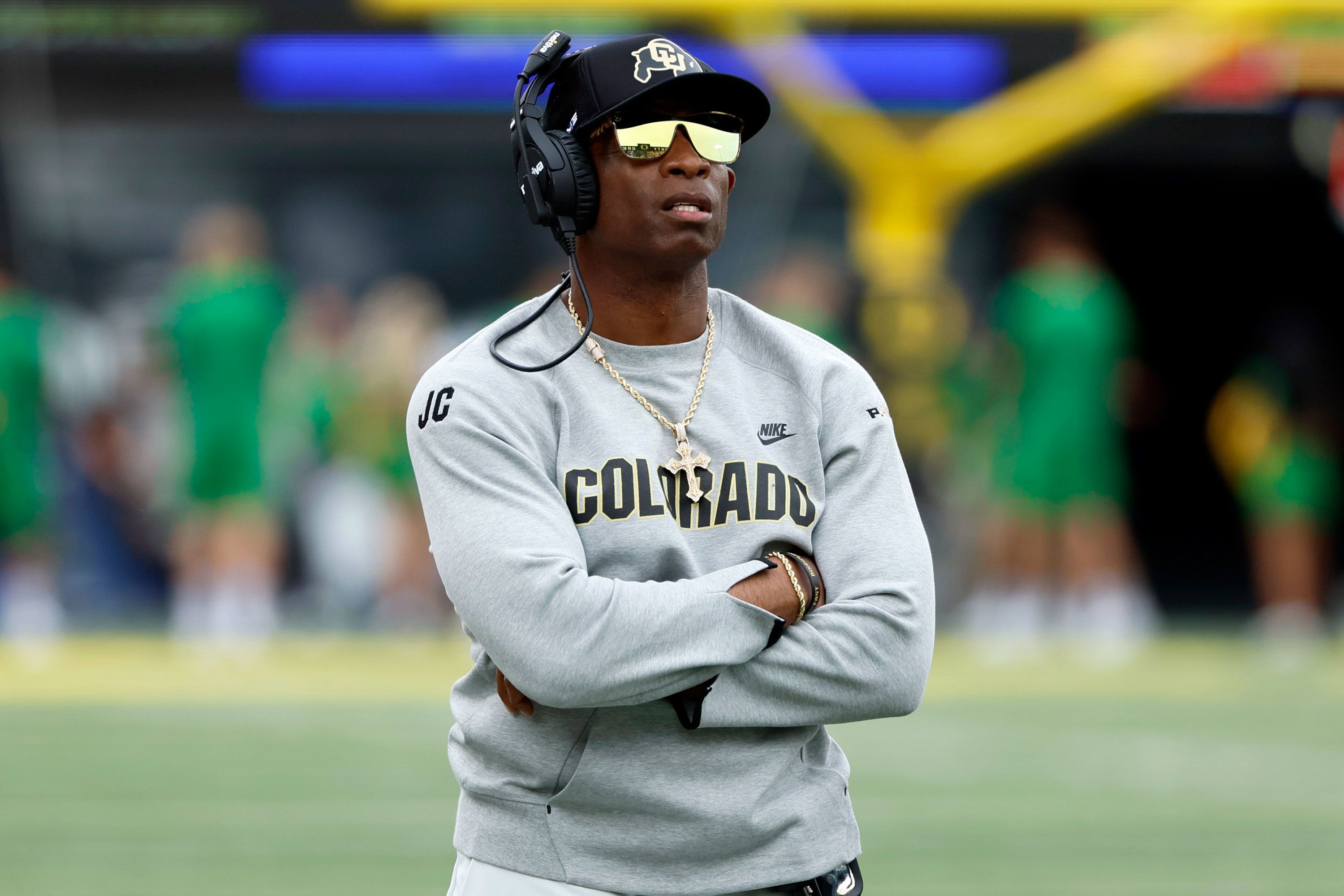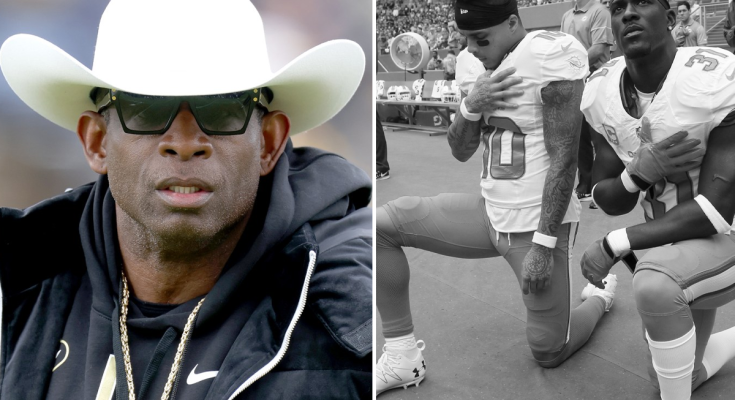In a move that has ignited intense debate, Coach Deion Sanders, popularly known as Coach Prime, has benched three players from his team for their persistent kneeling during the national anthem. Sanders, the head coach of the Colorado Buffaloes, made headlines with his firm stance, stating unequivocally, “I do not want activists” on his team.

Coach Prime’s decision to bench the players has stirred significant controversy. The players in question have been vocal about their stance on social justice issues, using the national anthem as a platform to protest systemic inequality. Their actions, a continuation of a movement popularized by athletes like Colin Kaepernick, have been met with both support and criticism.
Sanders’ decision underscores a growing divide between sports and activism. “I understand that players have the right to their beliefs and should stand up for what they believe in,” Sanders said in a recent press conference. “However, when it comes to our team, we have specific goals and values that we want to focus on. Our primary concern is the game and maintaining a unified team environment.”
The intersection of activism and sports has been a contentious topic in recent years. Athletes have increasingly used their platforms to speak out on social and political issues, challenging traditional norms in the process. Kneeling during the anthem, once a rare gesture, has become a symbol of protest against racial injustice and inequality.
While some view this form of protest as a powerful tool for social change, others see it as a distraction from the primary purpose of sports: competition and entertainment. Coach Sanders’ stance reflects this latter perspective, prioritizing team cohesion and focus over individual activism.

The benching of the three players has elicited a range of responses from both teammates and fans. Supporters of the players argue that their protest is a legitimate expression of their personal convictions and a reflection of broader societal issues. They believe that silencing such expressions undermines the values of freedom and individual rights.
Conversely, many of Sanders’ supporters and some team members have rallied behind the coach’s decision. They argue that sports teams are a collective unit, and individual actions that disrupt team harmony should be addressed. For them, the focus should remain on winning games and fostering a positive team environment.
Coach Sanders’ decision highlights a broader issue faced by sports organizations and teams. The balancing act between supporting athletes’ rights to express their views and maintaining a cohesive team dynamic is increasingly complex. As sports continue to serve as a stage for social and political discourse, leaders like Sanders are forced to navigate these challenging waters.
This situation also raises questions about the future of activism in sports. Will teams and coaches continue to prioritize a unified focus on performance over individual expressions of political and social beliefs? Or will there be a shift towards greater acceptance of athlete activism, reflecting the evolving role of sports in society?
As the debate around Coach Prime’s decision unfolds, it is clear that the relationship between sports and activism remains fraught with tension. Sanders’ approach to managing his team’s focus and unity is a reflection of his values and priorities as a coach. However, it also raises important questions about the place of activism in sports and how it will be managed in the future.
Ultimately, this controversy underscores the need for ongoing dialogue about the role of athletes in social and political movements. It challenges both sports leaders and fans to consider how best to support the diverse voices within the sporting world while striving for collective goals and unity.
As Coach Sanders continues to navigate these complex issues, the conversation around activism and sports will undoubtedly evolve, shaping the future of how athletes and teams engage with societal issues.



